COVID-19 Opinions of a Tech Entrepreneur
DK Episode 18 - May 27, 2020 - Duration: 30:26
Drawk Kwast talks about his opinions on COVID-19 as a tech entrepreneur.
Transcript
0:00:14.3 Drawk Kwast: I am both shocked and horrified at this repeating pattern that I'm noticing in society, and it can be most easily summed up like this: normal people have a tendency to under-react to threats that are far away from them, they also have a tendency to overreact to threats that are close to them. If you consider someone that's intelligent, somebody that has a lot of brain bandwidth, they're not only aware of the stuff that's happening right here in front of their face, but they're also paying attention to the horizon, so to speak, looking for the new stuff as soon as it's noticeable. Now, when they see something pop up on the horizon, they wanna evaluate, is this a prize, is this a threat, or is it inconsequential? If it happens to be a threat, then we pay attention to it, and because we're at a distance, there's really no fear involved here, 'cause you're looking at the threat from a distance, you're safe, right? And as you pay attention to the threat and watch it dance around and see how it behaves and interacts with things, you collect data on the threat, you're learning about it. If that day comes where the threat starts moving towards you, a weird thing kinda happens.
0:01:44.9 DK: Sure, you feel a little anxiety over the fact that a threat is moving towards you, but at the same time, that balances out with the data and the time that you've had to prepare, and just the general knowing of the threat, so you feel like you're not taken by surprise, right? If that threat actually shows up in your face, you then deal with it in a much calmer and rational way because you weren't surprised, you had all that time, you've collected the data, you've come up with a plan, you know what you're doing. So that's the experience for someone with high brain power. Unfortunately for normal people, they don't have the ability to see stuff on the horizon, they can only see stuff right here, so when there's a threat on the horizon, and I say they under-react to it, it's because they can't see it, so they under-react meaning they don't do anything, they just ignore it, they have no idea it's out there. And because of that, when the normal person experiences a threat, the first thing they know about the threat is, Aaah! It's right here, and this is why I say they have a tendency to overreact to threats when they're very close, they have no data on it.
0:03:10.0 DK: They just got shocked by it, taken off guard, they have no idea what to do, it's that part of the brain, the reptilian part that's firing that is saying flight or fight, right? And so that's why they have a tendency to overreact, they just kind of flail around and lash out. So what I wanna do today in this video is I wanna apply this type of thinking to the newest case of this, which is the COVID-19 thing, and I wanna offer you a little bit of a different perspective here maybe. I am a tech entrepreneur, and I have a slightly different way of looking at some of these things than a lot of people. I saw this coming on the horizon, so to speak, so I wanna share with you kind of a timeline of what I did and what I didn't do and what I thought at different points, and then where I'm gonna end this is hopefully to pull some information together here for you, so we know as a society how to move forward. Because right now we're in that trap of a bunch of idiots flailing around and screaming and making things worse.
0:04:27.9 DK: I found out about COVID-19 in the beginning of January. Me and my other business friends, we're always looking out on the horizon to see potential threats and potential opportunities, which sometimes are the exact same thing. So one of my good buddies, he actually imports a lot of product out of China. So at the time, Chinese virus affecting China, he was paying attention to it because he wanted to see what was gonna happen to his supply chains. For me, I don't do any import-export crap, so I'm watching it purely to see what happens, and if it spreads globally, we paid attention to it for a few weeks, and I think it was like the last week of January was when we hit the first waypoint for me, and what I mean by this is as I was looking at the threat dancing around in the distance, I said to me, "Okay, at what point do I care that this threat has become close?" Like, "When do I take an action?" And, the best thinking I could come up with on that was simply this: when there are two cases, because one could be a fluke, when there's two cases inside the US, that's when it's real to me, because they were telling us that the whole incubation period, it takes a long time. So if there's two verified then there's really more than that.
0:05:55.8 DK: So that was my first goal post that I set for myself, which is, "Okay, we take this seriously when?" Seriously to be defined later what that is, but we take it seriously when. Okay, so you have two people now that are confirmed, it's here. What do you do? Well, the first thing I do is I tell my friends that aren't in the know, so I'm sending very calm, very logical emails off to different people I know to say like, "Hey, this is what's going on in China, this has just spread to here. This could actually be a real threat, maybe from the virus or maybe just from stupid people doing weird things to the economy, but keep your eye on this." And I had set the goal post at that point as 1000, so if the US hits a thousand cases, I need to figure out what action I'm taking and I need to take that fucking action. Okay, so what did I do? It hit a thousand, and I went out and I bought a bunch of supplies that I would buy normally.
0:07:11.7 DK: So here's what I mean by this, like, yes, I did go out and I spent a few hundred dollars, but the money that I spent was on stuff that I'd use no matter what, with the exception of one thing, and I'll go over that in a sec here. So all of the canned food, I'm gonna eat that by Tuesday or over the next year, it'll get eaten. Toilet paper, mouthwash, toothpaste, the a new toothbrush, stuff like this, so all the things that were things in my apartment that I go through anyways, I just made sure I had more of them. The only thing that I actually bought that I wouldn't have bought normally is bottled water, I'm in Las Vegas, so the idea was there, "Hey, if we have something that happens to our water system, you're probably gonna wanna have some extra water," so I bought something like, I don't know. It was under $20 worth of water. And that's not something I would normally go through. So when you look at on the grand scheme of things, basically, what was my out of pocket waste at that point? It was like 20 bucks. Okay, so I stocked up and I was ready.
0:08:23.4 DK: Now, I'm a tech entrepreneur, I don't have an office, I work from home, I spend very little time on the roads, so the state of affairs for me was this, I don't have to leave my apartment and I don't need to leave my apartment. So if something happens, I've got everything I need there, including a medical kit, which I think cost me like 18 bucks or something like that. So I'm good. So then I sat there calmly and I waited for the next thing to happen. So what was the next thing? Well, one day we get told this fantastic story, and the story goes something like this. We start off with real data, how many hospital beds do we have in the US? I'll let you Google that one yourself. Then we take a model with some projections based on data that doesn't exist, and we come up with some kind of idea that, "Oh my God, if we don't do anything, we're gonna run out of hospital beds in America," and this isn't just like, you know, if you get COVID-19, you won't be able to go to the hospital. This is like, you can't have knee replacement, and if you have a heart attack, you just...that's it. You're dead, you're done.
0:09:52.1 DK: So under that, we decided to do the lockdown, and what we were promised when we decided to do the lockdown was simply this, we're going to flatten the curve. What did that mean? In data speak, it meant everybody gets locked at home, so this highly contagious disease doesn't spread across every one in five minutes, and we have no more hospital beds, so this makes sense, keep people away from each other, keep them well, so we don't flood our hospitals. And the idea was, what we were told at the time, maybe a month or so, and after that curve flattens, where we know we're not gonna flood our hospitals, that gives us some time to collect some data and then we'll start dealing with it from there. Now, here is the thing that the smart people knew that the dumb people still haven't figured out: that breaks your constitutional rights. They use the word quarantine though, well, you can quarantine a sick person to keep them away from the healthy people, so the healthy people don't get sick, but what if the person you're quarantining isn't sick, that's technically not a quarantine, you don't quarantine well people.
0:11:17.0 DK: So what are you doing? You're putting these people under house arrest. They can't leave their house, there's nothing wrong with them, that breaks so many of our rights, it's ridiculous, but since we don't want society to come to an end, we'll fudge on this a little bit and we will all stay at home for a while. Okay, so we all stayed at home for a while, what happened? Now, here's where it gets interesting, and here's where you have to geek out a little bit on the data and set your emotions to the side. Here's what I expected. I expected a extremely scientific approach to collecting as much data as we possibly could, as fast as possible, so we could make a better decision because our first decision was shit. I stand by it. Based off of the information that we had at the time, that was the best decision. But we knew that the best decision we could possibly make was shit, so the idea was to get this data in. Okay, so we wait for the data.
0:12:44.7 DK: Well, the data starts coming in and it starts looking kind of weird, why? Because countries like Sweden, they didn't do the shut down thing, and their data looked a whole lot like our data. So did locking everybody in their houses actually do anything? According to the data, no, because the places that did not do it, didn't have any bigger of a problem. Again, hindsights is 2020, looking at it now, you go like, "Well, yeah, duh," because by the time you locked everybody down, everybody already had it and you didn't even know, but that started raising some questions.
0:13:30.4 DK: Well, then we look at some of these models, and we had, I think the popular model was adjusted from like 3 million to 2 million deaths, so they figured like, "Okay, there's gonna be X million of people that are gonna die," this is what the experts said. The only problem was after the fact, they get out and they're like, "Oh, well, we originally estimated 2 to 3 million dead, and now there's only 100,000 dead, so see how good the lockdowns did." I call bullshit, because if you look at those models, they were already based on social distancing, so the social distancing models that said, eh 2-3 million, they missed it by a whole lot, and then to cover their ass, they kind of went back and they're like, "Oh well, it's because we did the social distancing thing." So some of these this data really, really starts to fall apart.
0:14:28.3 DK: Well, one of the interesting things, or the more interesting things that happened is what happened in the hospitals. See, because they wanted to have as many beds open as possible, made sense, they stopped unnecessary procedures. But some of these unnecessary procedures are kind of a big deal, like knee replacement and cancer treatment, yeah cancer treatment, not not essential. What? Are you fucking kidding me? That's what they did. Okay, so they cleared the hospitals out, waiting for all these patients, these COVID patients. They sent, if you remember, the Navy hospital ship to the West Coast and the other navy hospital ship to the East Coast. And I think the one in the East Coast, saw a total of 14 patients. So they figured out real quick that that spike that they expected wasn't gonna happen. There were field hospitals that they built that they never used, and now let me say this, again, because nobody knew what was gonna happen, so this was the smart thing to do, those decisions that were made were the best decisions to be made at the time based off of the information that we had, it just turned out that our information was totally fucking wrong.
0:15:49.2 DK: Well, now the people in charge have egg on their face, they've already shut down the economy and fucked our economy for God knows how long, they've created a climate where people are at home going nuts, doing nothing more than masturbating, drinking, and smoking weed. That's not healthy for the society, well their answer is, "Don't worry, we'll give you free money, but like, you know, we gotta cover this, we gotta do all of this stuff," and they basically turned out to be wrong. Now, rather than doing what intelligent people do when they're wrong and say, "Hey, I made a guess, and it was more than a little off, but we have new data, so let's correct." They allowed the numbers to get bloated, to cover their ass. If you don't know about this, look this one up. So remember that the hospital shut down a bunch of space because they were waiting for this influx that never happened, but since the influx never happened, the hospitals are now empty and they're under court orders to basically stay empty, so now the hospitals are laying off nurses and doctors, because the hospitals are empty while people are trying to get their treatments for shit that they really need. This is totally insane.
0:17:19.7 DK: So here's where the numbers started getting fucked up with the hospitals, the government did the thing where it said, we're gonna cover all of the expenses for COVID-19, so if you have somebody that comes in, it doesn't matter if they have insurance or if they're off from the street we'll cover the COVID cost, and the hospitals are going, "Great, we can cash in on this." The problem is, as the hospitals emptied out and they're short on money and they have no idea how they're staying in business, it didn't take much time for human nature to kick in and for somebody to get the bright idea that all they need to do is just stamp everything COVID-19 and they'll get more money. So I challenge this to any of the smart people out there, drill down into the data and look at how dirty the data is. You've got people that were hit by a car and the cause of death is COVID-19. And when you look at where they got the COVID-19 from, it says unconfirmed case, like unconfirmed case, COVID-19. Oh well, they had a cough and they were weak.
0:18:21.8 DK: Are you fucking kidding me? They just got hit by a car. You did no test, and they seemed weak to you after getting hit by a car and you're like, "Oh, hit by a car, a little cough, that's COVID," and then they cash in on that. Wow. Wow. So when you start peeling back some of this bullshit, and you ask a very simple question for the data, you say, like, "Look, look, look. Let's deal with the data right now." I wanna know the age of the patient, I wanna know what the comorbidity, I wanna know what major health problems they had. I wanna know if a COVID-19 test was actually given or if it was never confirmed. Because if it was never confirmed, then you don't get to count it. And I wanna know in these testing numbers, where you know you say, "Oh my God, we just found another 10,000 cases over here," finding cases is not good data by itself without saying where you're looking. So in other words, if you don't do any testing over here, and then all of a sudden you go over there and you mass test everyone, you're gonna have a huge spike in cases, if you look over here and you haven't tested anyone, and you never test anyone, you're never gonna have, oh my God, a bunch of cases.
0:20:01.0 DK: Then you have to take into the account that they're telling us that most of the people that get this will be asymptomatic, so they won't even know that they have it. So now, these numbers are getting so muddy and you're asking yourself questions like, "How the fuck do you calculate a death rate when you have shit numbers?" If you're only testing the people that are sick, and out of that group a certain percentage are dying, but you're ignoring the greater population that has it and doesn't even know they have it, obviously, your death percentage numbers are way to fuck off. And so people started to figure this out and they started to get angry. So they tried to stuff it as well as they could. So when you peel back all these bullshit numbers, like right now I think total death 100,000 or something like that at the time of the recording of this video. You start peeling back ones that were not confirmed. You start peeling back the ones where the cause of death was something else and they just happen to have it, and that number starts shrinking. Again, they're overreacting and running around like crazy idiots, because, "AH! It just happened on me."
0:21:28.5 DK: Okay, so let's say that, let's take that number, and I'm not gonna make a guess, but you do that in your head and in a few months, we'll probably know how this works. Cut that number by whatever you think the bullshit factor is. So it was 100,000, now we move it to something else. So now that you've done that, let's look at one specific fuck up. So this is like a case study in fuck-ups. And this is the thing I'll leave you with as far as the statistics go. One-third of all deaths in America were in New York. Two-thirds of the deaths in New York were old folks homes. They were senior citizen, not healthy, waiting to die. So how did this happen? Well, Cuomo, fucking idiot, decided that the best course of action with the most vulnerable population would be if you've got somebody that's elderly in the hospital with COVID-19, you need to get them out of the hospital right away and get them back into the old folks home. Wait a second, what? You're gonna take an infected person with a highly infectious disease, and you're going to put them in the middle of the most vulnerable population you can? Yeah, that explains why two-thirds of the deaths happened in these retirement communities.
0:23:18.0 DK: Now, here's the thing. This is gonna fuck with you. We know those numbers, there's no question mark in that one. Those are the facts. So if we look at New York specifically, and in New York specifically we know that two-thirds of that was because they were purposefully, not knowingly I think at the time, but they were doing this on purpose, this was their plan, infecting the old folks home, if that's two-thirds of your deaths, and at the same time you've got the data that shows that the hospitals are fucking around with the other ones where you get somebody like a vagrant hit by a car or a heroin overdose, they're like, "Oh, it's a homeless person with a heroin overdose, we can't get paid for that, so let's say they had COVID-19 and we can get paid." Well, what number did you come up with before when I said, "What's the bullshit fudge number?" Because if your bullshit fudge number that you came up with in the last example would say like, I don't know, a third, which is I think very possible. Then that means two-thirds of the death happened because of the governor, and the other third wasn't even COVID death, it was something else.
0:24:29.4 DK: Are you getting my point here? Okay, so to bring this full circle, here's what I'm saying, if you're in charge, you have to have the balls to be wrong. If you're not in charge, you have to have the balls to ask for the data. It's as simple as that. And how do I say this? The...there are people that made mistakes that couldn't have made a better judgment call at the time. And these people can be forgiven, right? It's like, "You did the best you possibly could, okay, admit you're wrong and you're good." But these people, like the Governor of New York who can't admit that they were wrong and just keep on laying more bullshit on top of more bullshit on top of more finger pointing, they need to be held accountable because they need to be removed from office.
0:25:28.1 DK: We can't have idiots like this making decisions for the population. Now, typically, I'd say something like, "We can't have idiots like this making decisions for the population. I mean, my God, it could be life or death." This is fucking life or death. So these people need to be held accountable. And you need to start calling bullshit on everybody and asking for data. When somebody tells you X, Y, Z happened, ask for the data and ask for the terms under which the data was collected. Right? Is this verified data? Is this out of your ass? Is this only old people in old folks homes? What about people that are 20 years old? Asks a lot of fucking questions. Going forward, I'm a tech entrepreneur, I sit at home all day. I'm fine. My businesses aren't affected. In fact, as more people end up in lockdowns and not being able to go into work, and this person is laid off, and that job doesn't exist anymore, you know where that part of the economy goes? It goes to the computer techs. So I'm fine either way.
0:26:34.8 DK: But for the public in general, and for us as a society, lockdowns are unconstitutional. You cannot put a person who is not sick in quarantine. We're done. We've had enough. Lockdowns over, time to turn this shit off. And for the socialists out there that are scared to leave their fucking houses, that's fine. If you don't wanna leave your house, if you don't wanna go to work, it's America, it's a free country. Don't work. Don't leave your house. I don't fucking care. But you goddamn fucking leftist socialists can't tell the rest of us that we can't leave our houses when we're perfectly healthy, we've been eating right, we've been staying healthy, we've been investing in you know not being 800 pounds. All these things where they're like, "Well, fuck you for being healthy and thinking you're better." Well, yeah, and then there's a global pandemic and we survive just fine. So if you wanna sit at home, you can. You just can't tell everybody else that they're under house arrest.
0:27:57.6 DK: And there's something else at play here that I want the people that are brave enough to leave their house and go be productive in society to realize. I hope all of these entrepreneurs out there, all you business owners and all you brave people that went out there and made a buck during this, I hope you guys realize that the longer that we let this go, even though we see it as not affecting us right now 'cause we're making money, what do you think happens with all those people sitting at home collecting money for nothing? Where do you think that money comes from? That money comes from the productive. So as a productive person, it is in my best interests to motivate those people to look at the data so they can stop being so fucking scared, and go out in society and start making money. Because if they don't, we're already on the hook. Those of us that are productive, we're already on the hook to foot the bill so far, and the longer it takes for them to get to work, the more money they're gonna expect from us later. You know how the argument goes with the socialists, "Oh, well, you have money 'cause you stole it from everyone else, and that's why we need it." Well, no, look at what happened over COVID-19. Those of us who have money are the ones that fucking stayed working and figured it out and made adjustments. We didn't steal it from anyone, we made it.
0:29:27.9 DK: So I really, really, really wanna drive that point home, that even if you're one of the smarter people that knows what's going on and you're making money during this, you know, bless you. Awesome. But you need to talk to the normies, and you need to explain to them that you can't sit at home forever. Or as Elon Musk put it, "People need to build stuff for there to be stuff." The socialists can't steal wealth if they've completely ruined the economy that creates the wealth. Okay, I think I've said enough on this one. Tell me what your thoughts are down in the comments below.
News Feed
Thu. - Jan. 08, 2026 - 09:32 PM (Pacific)
Happy New Year! The adventure continues...
Thu. - Sep. 11, 2025 - 01:50 PM (Pacific)
I’m a fighter who would rather be bloody in the ring, then to be a spectator in the audience.
Sun. - Feb. 16, 2025 - 05:21 PM (Pacific)
In my time on this planet I’ve had a psycho Thai stripper chase me with a large knife, I’ve been shot at on the Las Vegas strip, and I even crashed a 1000 cc crotch rocket once.
Thu. - May. 09, 2024 - 02:06 PM (Pacific)
Making mistakes is encouraged, that's how you learn. Repeating mistakes is discouraged, that's how you lose. Now go fucking learn how to win!
Sat. - Feb. 24, 2024 - 10:04 PM (Pacific)
Confusing memories with thinking is incredibly dangerous and easy to do.
Mon. - Jan. 22, 2024 - 01:53 PM (Pacific)
It's all a sideshow. Focus on the task in front of you, that you can see with your own eyes. Stop chasing ghosts!
Sat. - Dec. 23, 2023 - 10:33 PM (Pacific)
Calmly over-demonstrate to the peasants that you have god-like powers and are incapable of giving a fuck about anything.
Sun. - Nov. 26, 2023 - 10:05 PM (Pacific)
You want to practice and master text game with women? Get an account at dreamgirls.com
Wed. - Nov. 22, 2023 - 10:50 AM (Pacific)
...because respecting someone’s right to have an opinion is NOT the same as respecting someone’s opinion.
Thu. - Jul. 27, 2023 - 03:47 PM (Pacific)
If you're NOT inches away from a nervous breakdown, you're NOT working hard enough.
Got information? Contact us.


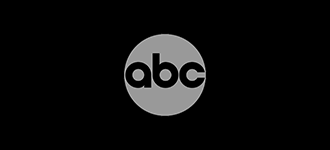




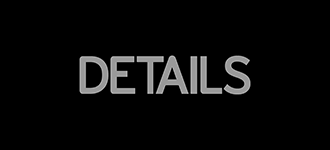
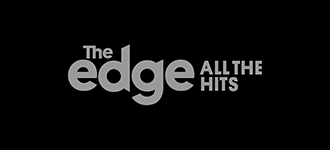

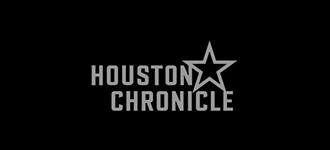





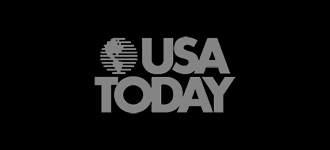







 Chazz L.
Chazz L. Jesse M.
Jesse M. Travis D.
Travis D. Luke S.
Luke S. Dave P.
Dave P. Garrett M.
Garrett M.